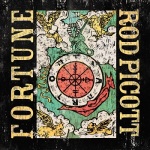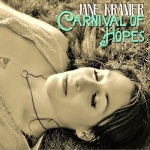 So; first gig of the year and let’s see what’s changed and what hasn’t. Well, the problems with transport haven’t changed; because of engineering work and a late start by the headliners, Southbound, I only caught the first three songs of what was shaping up to be a storming set of funky Southern rock and boogie. Sorry guys, I’ll make up for it next time. The other thing that hasn’t changed is people talking over artists at gigs. Why do you pay to see bands, completely ignore them and spend all night having your own conversations? I could ask why the sound engineer doesn’t bump the volume up a bit as well.
So; first gig of the year and let’s see what’s changed and what hasn’t. Well, the problems with transport haven’t changed; because of engineering work and a late start by the headliners, Southbound, I only caught the first three songs of what was shaping up to be a storming set of funky Southern rock and boogie. Sorry guys, I’ll make up for it next time. The other thing that hasn’t changed is people talking over artists at gigs. Why do you pay to see bands, completely ignore them and spend all night having your own conversations? I could ask why the sound engineer doesn’t bump the volume up a bit as well.
So with two acoustic singer-songwriters as the first acts on stage, things didn’t look too good. Hannah Jackson coped pretty well, mainly because of her incredibly powerful voice with jazz and soul inflexions, playing a set which combined her own songs with some covers, including a great version of The Killers’ “All these Things that I‘ve Done” and the Johnny Cash classic, “Folsom Prison Blues”. I think we might hear more from Hannah. Second up, Saraswati, wasn’t quite so lucky. Her delicate songs, including her debut single “Bad Habits”, and her delicate, breathy voice (maybe a hint of Sade there) were all but drowned out by the braying crowd. At times like this, I’m grateful we have strict gun laws.
No such problems for The Likks, though. Their brand of noisy riff-based rock, funky melodic basslines (a hint of The Black Crowes) and Jordan Jay Kennedy’s big voice didn’t stop the talking, but it made it really difficult to carry on a conversation. Within each song there were tempo changes and rhythmic shifts which added variety but also a bit of disorientation. You certainly didn’t know what was coming next; raw but interesting. And so, on to the reason I was out in south-west London on a freezing winter night.
It’s been a bit of a turbulent year for Little Devils (“The Storm Inside”, indeed); following a cabinet reshuffle, they now have a new singer and guitar player, Magda Supel and Chris Walker respectively. I never need an excuse to go and watch Little Devils, but I particularly wanted to see how the new line-up was gelling. It’s all good news; despite having limited time to rework the songs for the Devils Nouveaux, the band sounded great. The rhythm section of Sara and Graeme powered the band along while Magda sung with soul and power (despite being really ill) and Chris looked and sounded like he was having the time of his life; he’s a quality guitar player. They powered through a half-hour set that included Devils favourites “Pay the Waiter”, “My Perfect You”, “Good Times” and Graeme’s growled version of “A Long Time Ago”. The newest diabolical incarnation sounds absolutely fine to me.
And, apart from a few songs from Southbound, that was the end of my first gig of the year. Four stars for the performers, one star for most of the audience.
 This review’s going to be different from most of the things you’ll read about Mollie Marriott’s album “Truth is a Wolf” in one important way; I won’t be saying anything about Mollie’s musical heritage. You can read about that elsewhere, and I want to focus on Mollie and the superb team she’s created to deliver her musical vision. As a songwriter and singer she deserves to be judged on her own merits (and on the merits of her writing and performing partners) as she releases her debut solo album. The band deserves a special mention here as well. This isn’t an album put together by a bunch of studio hacks; Johnson-Jay Medwik-Daley (guitar), Sam Tanner (keyboards), Henrik Irgens (bass), Alex Reeves (drums) and Izzy Chase-Phillmore (backing vocals) are Mollie’s live band (in various acoustic and electric permutations)and Sam and Johnson collaborate on songwriting as well. In a live setting, it’s obvious that they’re all great players, but equally obvious that they love working together and they’re good mates.
This review’s going to be different from most of the things you’ll read about Mollie Marriott’s album “Truth is a Wolf” in one important way; I won’t be saying anything about Mollie’s musical heritage. You can read about that elsewhere, and I want to focus on Mollie and the superb team she’s created to deliver her musical vision. As a songwriter and singer she deserves to be judged on her own merits (and on the merits of her writing and performing partners) as she releases her debut solo album. The band deserves a special mention here as well. This isn’t an album put together by a bunch of studio hacks; Johnson-Jay Medwik-Daley (guitar), Sam Tanner (keyboards), Henrik Irgens (bass), Alex Reeves (drums) and Izzy Chase-Phillmore (backing vocals) are Mollie’s live band (in various acoustic and electric permutations)and Sam and Johnson collaborate on songwriting as well. In a live setting, it’s obvious that they’re all great players, but equally obvious that they love working together and they’re good mates.
The other songwriting collaborators include Judie Tzuke, Graham Kearns and Jim Stapley (one of the best voices in rock at the moment) and to add little spice, there are a couple of non-originals; a storming version of World Party’s “Ship of Fools” (Mollie’s first single, released last year) and the title track, written by Gary Nicholson and Bonnie Hayes. Mollie’s channelled a lot of heartbreak through these songs, including the opener “Broken” which deals with a failing relationship, and “Love your Bones” about the death of a good friend, but it’s ultimately a hugely uplifting album, despite the serious themes. So, how does that happen?
There are a couple of reasons; one is Mollie’s huge voice and the other is the incredibly good band. Let’s start with the band. The rhythm section does exactly what it says on the tin (there’s even a few melodic bass riffs thrown in)and creates a platform for the interwoven guitar and keyboard arrangements, which are all beautifully played without ever straying into muso ‘look at me’ territory. The second single, “Transformer” is driven along by Johnson’s infuriatingly catchy, over-driven earworm of a guitar riff while Sam’s smoky keyboard riff is the impetus behind “Truth is a Wolf”. And then there’s Izzy, also a great singer, whose voice works perfectly alongside the lead vocal.
And Mollie’s voice? Well, what can I say? She can do the pop singer thing, hitting all the right notes and sounding crystal clear and that might be enough for a lot of people, but there’s another dimension. When she goes up through the gears, she finds a raw emotional edge that only the best soul and rock singers have, and she can move seamlessly between these styles.
In putting the album together, Mollie’s written about a lot of painful episodes, but she’s managed to create a superb, powerful album from those episodes. This is an incredibly assured debut album packed with personal, well-crafted songs and technically perfect but often under-stated instrumental performances. This sounds like Mollie’s breakthrough.
Oh, and just one more thing, go and see the band live if you get the chance; you won’t regret it.
“Truth is A Wolf” is out in February 2016 on MITA Records.
This version of the album was withdrawn after the promotion copies were sent out, substantially recorded and released in late 2018. It’s a different album, but still a very good album. You should definitely go and see them live.
 I think we need to introduce a new way of evaluating Country and Americana albums. The five star system’s all very well but I think we need another measure. I’m thinking of something like the Kimbrough Count; if Will Kimbrough plays on the album then it’s worth listening to. It certainly worked last year with his appearances on albums by Dean Owens and Sam Lewis, and he shows up again here on Rod Picott’s seventh album “Fortune”, but this is a very different proposition to the albums by either of those artists.
I think we need to introduce a new way of evaluating Country and Americana albums. The five star system’s all very well but I think we need another measure. I’m thinking of something like the Kimbrough Count; if Will Kimbrough plays on the album then it’s worth listening to. It certainly worked last year with his appearances on albums by Dean Owens and Sam Lewis, and he shows up again here on Rod Picott’s seventh album “Fortune”, but this is a very different proposition to the albums by either of those artists.
Rod Picott’s songs are intensely personal, zooming in on the lives of ordinary people (Rod included) and everyday events, and delivered in a gruff baritone that often sounds on the point of cracking, but never actually does. More often than not, he performs with just his own acoustic guitar for backing, but, on “Fortune”, he’s added a smattering of musicians including Will Kimbrough and Neilson Hubbard to create a sound that’s still sparse, stark and sometimes downright menacing and intimidating. It’s still a fairly minimal soundscape but it reinforces the powerful lyrics which are poetic but never overblown.
“Uncle John” is slightly untypical in that it deals mainly with family and society rather than personal matters, but the instrumentation is unsettling with detuned guitar, clipped notes, harmonics, heavy reverb and a sound somewhere between Dick Dale and Link Wray all underpinning a story of an outsider woodsman who pays the ultimate price for stepping outside society. The two lines ‘Drinks his beer from a can cause bottles break, Nine fingers from one mistake’ paint a graphic and economic picture of the lifestyle and its dangers, while the closing lines (along with the chorus) imply his death without actually making the statement.
The themes of the songs are mainly personal (although “Jeremiah” is written from the point of view of a woman hearing about the death of a soldier she loved), but it’s the moments when Rod steps back from dealing with raw emotion to singing about more general themes, particularly “Uncle John” and the moodily magnificent “Drunken Barber’s Hand” that the album really starts to soar. The album’s full of powerful, gut-wrenching songs that evoke the spirit of heartland America with imagery and playing that are equally powerful and simple. 2016’s looking good already.
“Fortune” is released in the UK on Friday January 15th on Welding Rod Records.
 I’ve got this feeling about 2016; any year that starts with an album as beautiful as Jane Kramer’s “Carnival of Hopes” can’t really go wrong. This is a stunningly good album where every detail is right; the arrangements are varied, the melodies are powerful and Jane’s vocal delivery moves effortlessly from pure and clear to cracking with emotion. As for the songs, they’re raw, honest, self-deprecating and poetic, as Jane explains: ‘“Good Woman” is the song you write when your lover kicks you out of the house and you’re half drunk on cheap box wine in a crappy motel room staring at yourself in the mirror under the fluorescent bathroom light, you can’t help but be honest then.’
I’ve got this feeling about 2016; any year that starts with an album as beautiful as Jane Kramer’s “Carnival of Hopes” can’t really go wrong. This is a stunningly good album where every detail is right; the arrangements are varied, the melodies are powerful and Jane’s vocal delivery moves effortlessly from pure and clear to cracking with emotion. As for the songs, they’re raw, honest, self-deprecating and poetic, as Jane explains: ‘“Good Woman” is the song you write when your lover kicks you out of the house and you’re half drunk on cheap box wine in a crappy motel room staring at yourself in the mirror under the fluorescent bathroom light, you can’t help but be honest then.’
The album’s two centrepieces, “Good Woman” and “Carnival of Hopes” are its two longest songs; they’re not long because of any self-indulgence, but because that’s how long they need to be to tell the story. Both titles are deliberately misleading; the opening line of the first is “I’m not a good woman” (we might disagree on that) and the second is about a “busted carnival of hopes”. Throughout the album, Jane Kramer uses a lyrical sleight of hand to almost constantly portray herself in a self-deprecatory and even self-denigrating light. The opener “Halfway Gone” sets the tone with the line ‘I walk like a Clydesdale horse – I cuss and carry on’ and the album’s lyrics continue in the same vein until “Truth Tellin’ Lies” and “My Dusty Wings” finally suggest an attempt at redemption and renewal.
The Appalachian instrumentation of banjo and fiddle features strongly on the album along with Dobro, but the stylings vary immensely across the album from a stripped-back version of Tom Petty’s “Down South” with multi-tracked harmonies and a Celtic feel, to the New Orleans horns meets Rickie Lee Jones vibe of “Why’d I Do That Blues” with its trumpet and trombone solos (you could sell it to me on a good trombone solo alone).
The narrative of the album is one of moving forward, starting with lows and moving steadily along to the positive ending, taking in images of frontier life along the way with animals, fishing, maps, engines (and of course drinking) acting as metaphors throughout the superbly crafted and intensely personal lyrics. It may sound laid-back and almost casual at times, but these are the songs of a very gifted and honest writer.
“Carnival of Hopes” isn’t just a great Americana album, it’s a great album where the quality of the songwriting and performance transcend any concept of genre.
Available now at CD Baby.


